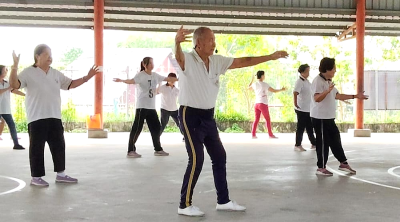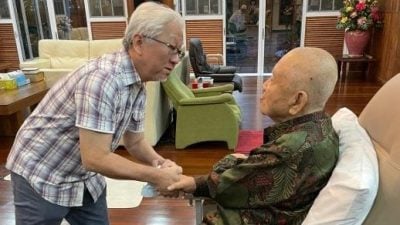
A recent survey on young Asians’ values on major online networks covering Malaysia, Singapore, China, Hong Kong and Taiwan shows that Malaysia’s young people aged between 18 and 45 have been performing relatively well in their attitude towards the so-called 4E’s (Engagement, Energy, Execution and Expectation).
While they fall behind Singapore and Taiwan, they are well ahead of China and Hong Kong in the survey. This shows that young Malaysians are generally energetic and they refuse to “lie flat” or lead a listless life.
The survey was conducted jointly by Taiwan-based Global View Research, Lianhe Zaobao of Singapore, Sin Chew Daily, and the Department of Journalism at Hong Kong Baptist University.
The questions were posted on the official Chinese language websites of the participating organisations. As a result, we can deduce that respondents of the survey are all well versed in the Chinese language.
The four participating organisations jointly published the outcome of the survey on Monday.
As the survey was conducted in Chinese and the respondents are presumably Chinese, the results could be very different if it were also conducted in other major languages with participants from other ethnic communities across the Malaysian and Singapore societies.
“內卷” (nei juan) and “躺平” (tang ping) are very popular Internet jargon in Greater China and among the Chinese diaspora elsewhere nowadays.
Nei juan means “over-competition” while tang ping denotes “opting out of competition,” or refusing to join the rat race.
These two extremes reflect the polarized attitudes among new generation youngsters in the midst of frustratingly intense competition.
The nei juan phenomenon is excessively serious in Mainland China, where 996 (working from nine to nine for six days a week) has become a norm in the job market.
Young people are working extra hours but their efforts hardly impress their employers, prompting many to simply give up or “lie flat,” and depend on their parents for financial support.
The slightly more positive-minded may opt to start a web cast career, but even this is not easy now.
Over the past three decades, there have been indeed two generations of Chinese savoring the fruit of their country’s vastly successful economic reforms, and there are plenty of rags-to-riches success stories to prove this point.
Many young people have started their own companies with funds provided by their parents or from their own savings. However, as the market becomes increasingly competitive and saturated, making money is no longer as easy now as during their parents’ time.
Major brands and platforms dictate the rules of the game, and entering the market at this moment is veritably a little too late. In the end, many have been washed out of the market, and have steered out of nei juan to embrace the passive tang ping attitude.
After the pandemic, countries around the world have been recovering at varying paces; goods prices are hitting the roof, adding tremendous burden to many, while breakneck development in AI technologies is re-authoring the way people live.
Young Malaysians have learned to look to themselves in order to survive, either to work hard here, or to make a living across the Causeway for more attractive pay.
Meanwhile in Malaysia, our young people have to grapple with the tough challenges in job opportunities and mere survival.
That said, the survey shows that Malaysians are generally more positive than their peers in China or Hong Kong, including in their pursuit of success (67%), expectations for the future (64%), and enterprising spirit and dynamism (62.2%)
As for the future, they are more inclined towards living independently (85.8%) and are reluctant to look to their parents for support.
While Malaysian youngsters may not live as comfortably and richly as their peers in Singapore or Taiwan in terms of the country’s development, education opportunities, social and medical welfare — their positive attitude towards life has been nonetheless impressive, and this highlights the versatility of Malaysian youths.
“Versatility” has been molded into the value system for the survival of young Chinese Malaysians under the existing lopsided social system. People have learned to look to themselves in order to survive, either to work hard here, or to make a living across the Causeway for more attractive pay.
If they want their children to have a better life, they will have to provide them with better education in hope of twisting their fates.
The above survey reflects young Malaysians’ expectations for their lives, careers, their perception of life, as well as the future.
Indeed, our youngsters are looking to the future with a largely positive attitude, and are working very hard to fulfill their dreams.
As for the youths on the other side of the Causeway, Associate Professor Eugene Tan of Singapore Management University feels that Singapore’s government policies encourage the people to inculcate the spirit of independence as well as a more globalized outlook. Of course, this also helps expand the respondents’ international outlook as well as their confidence in learning smart technology.
Eugene Tan says young Singaporeans are the most upbeat about their country’s development prospects over the next five years, and they are also most confident in fulfilling their dreams, with more than half believing their dreams will “definitely” be realized within the next 10 years.
Due to the increasing strength of the country, Singaporeans are generally optimistic of their future, with 51% of respondents confident of their own international outlook. Malaysians is ranked fourth in the survey, only ahead of Hong Kong.
As a matter of fact, Hong Kong almost trails in all major parameters, something the organizers might not have expected before the survey started.
Read:
ADVERTISEMENT
ADVERTISEMENT


































